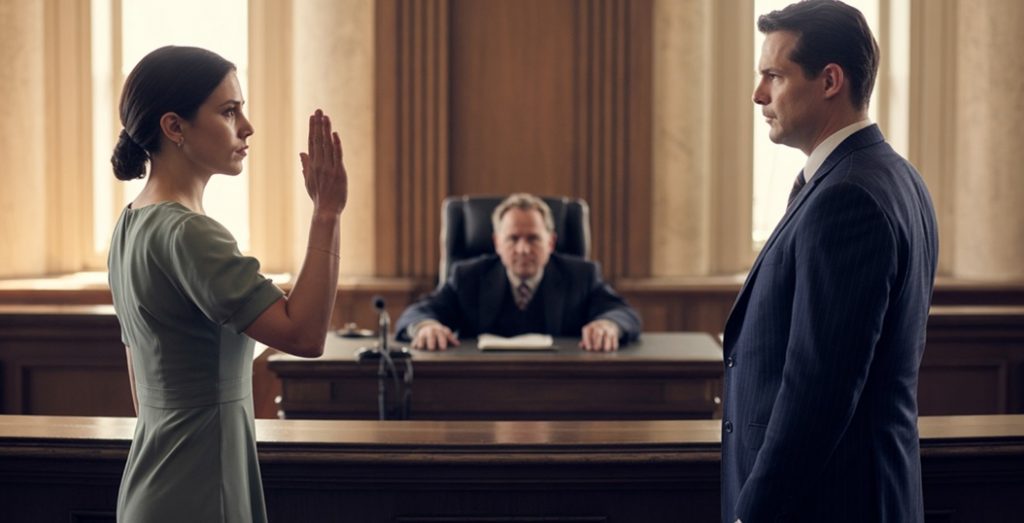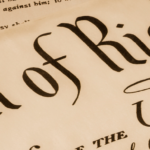What is a No Contest Plea?
An individual charged with a felony or misdemeanor must plead no contest, guilty, not guilty, or stand mute. A defendant who pleads “no contest” is found guilty by the judge but does not have to admit the crime.

A No Contest Plea Has Advantages and Disadvantages
When a person is charged with a crime, they face several options to resolve the case. If a defendant decides to take responsibility for a crime, they can enter a guilty or no contest plea. A nolo contendere or “no contest” plea is treated as a guilty plea, even though it is not an admission of guilt. A defendant who pleads guilty can benefit from arguing that they’ve “taken responsibility” when seeking a lenient sentence; however, there are situations where an admission of guilt is not in a defendant’s best interest.
A criminal defendant may contemplate entering a no-contest plea instead of a guilty plea for various reasons. First, a no-contest plea permits the defendant to evade admitting guilt while accepting responsibility for their actions. Avoiding a factual admission can be advantageous in cases where the defendant faces criminal and civil liability, as someone might be able to use their guilty plea against them in subsequent civil proceedings. Second, a no-contest plea may help the defendant preserve their reputation by averting the stigma and negative public perception that can accompany a guilty plea. The defendant can maintain their innocence in the court of public opinion by entering a plea of no contest. In cases where the defendant believes that a trial could result in an unfavorable outcome, a no-contest plea can be strategically advantageous. By avoiding trial and negotiating a plea agreement, the defendant may be able to obtain a lighter sentence or have certain charges dismissed. Ultimately, the decision to enter a plea of no contest or guilty highly depends on the case’s particulars, and the defendant must consult with an experienced attorney to determine the best course of action.
Why plead no contest? Why not just plead guilty?
Lack of Memory and Ability to Make a Factual Basis
Often, drugs or alcohol are involved in a criminal case, and the defendant has no memory or an inaccurate memory of what they did. These people want to admit wrongdoing and get it over with, but they can’t remember what happened and are not allowed to make it up. With a guilty plea, the court must establish that there is a knowing and voluntary admission of guilt. A defendant must articulate how they committed a crime when pleading guilty. A no-contest plea is an alternative for resolving a case without a trial if a defendant cannot admit facts sufficient for a guilty plea.
Potential Civil Lawsuits
In criminal cases, someone is frequently physically injured, or property is stolen or damaged. A crime victim can file a civil lawsuit against the defendant in these cases. A no-contest plea permits a court to enter a judgment of guilt without the defendant making admissions that someone can use against them later as evidence in a lawsuit.
Courts treat a no-contest plea the same as a guilty plea for criminal records and sentences, but the defendant does not have to say in their own words what they did. Therefore, a victim can use the defendant’s admission in a civil case.
Avoiding Embarrassment and Discomfort
Another benefit of resolving a case with a plea is that no “dirty laundry” will be aired publicly. The defendant’s embarrassing, socially unacceptable, or lurid behavior will not be available to the local media. The judge will rely on the allegations and evidence in a police report or other evidence to accept the no-contest plea and spare the defendant possibly life-ruining publicity.

Pleading No Contest is Not a Right.
The judge must approve a no-contest plea. A judge can accept a no-contest plea to an original charge despite an objection from the prosecutor. However, the prosecutor can condition a plea bargain for a reduced charge on a guilty plea. A defendant might be unable to plead guilty because of a lack of memory. In other cases, it might be unwise to plead guilty because of a pending or potential civil lawsuit. In these cases, the parties might not be able to agree upon a plea bargain conditioned on a guilty plea.
How can a retained lawyer help with a no-contest plea?
Sometimes, persuading a judge to accept a no-contest plea can be challenging. In other cases, the prosecutor might have to be convinced to offer a plea bargain without the necessity of a guilty plea. Inexperienced or inferior lawyers may have little hope of negotiating an advantageous plea bargain. If a no-contest plea is in the defendant’s best interest, it can take a retained lawyer who is savvy and experienced to negotiate a favorable resolution.

The Firm that Has Your Back
It is imperative to retain an experienced defense attorney to arrange any plea deal, including a no-contest plea. The experienced defense attorneys with LEWIS & DICKSTEIN, P.L.L.C. know how to articulate convincingly why a no-contest plea should be allowed. There are times when the evidence is so overwhelming that it would be foolhardy to take a case to trial without trying to arrange an acceptable plea-based resolution. If it is in our client’s best interest, our attorneys will do whatever it takes to negotiate a resolution with a no-contest plea. Call us for a free consultation and confidential case evaluation.
Call us today at (248) 263-6800 for a free consultation or complete an online Request for Assistance Form. We will contact you promptly and find a way to help you.













